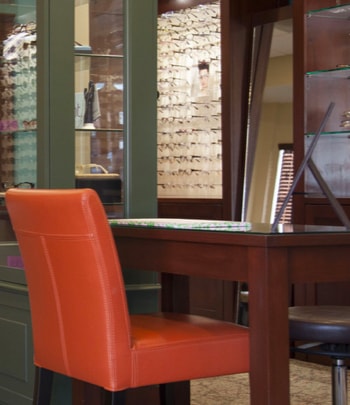Find Out If Laser Eye Surgery Is Right for You
If you’ve ever wondered what your life might look like without glasses or contact lenses, you might be interested in what laser eye surgery offers.
Our unique approach to co-managing laser eye surgeries could help you find crisp, clear, comfortable vision. We take the time to understand your eyes and their needs, and the care we provide after your surgery could help manage and soothe your recovery.
Book a consultation today and discover how we can help you achieve optimal vision.
What Is Laser Eye Surgery?
Laser eye surgery, also known as refractive surgery, is a surgical process that aims to permanently correct refractive errors, including myopia, hyperopia, and astigmatism.
There are several different types of laser eye surgery. Some may reshape your corneal tissue, while others replace your clear, crystalline lens with an artificial intraocular lens (IOL). The type of laser eye surgery we could recommend may depend on your eye health history and the type of issue you wish to correct.
Having laser eye surgery doesn’t guarantee 20/20 vision, but many people report that their vision improves after surgery. If you’re interested in the procedure, we first have to perform a consultation.


Consultations
Laser eye surgery consultations are eye exams that help us determine if this procedure is right for you and which type of surgery may serve you best. During a consultation, we consider various aspects of your eyes and eye health to ensure you don’t have any issues that may affect the outcome of your surgery. Some of these issues include:
- Dry eye
- Eye disease
- Eye infections
- Health conditions
- Overly large pupils
If you’re a candidate for laser eye surgery, we’ll refer you to an eye surgeon, called an ophthalmologist, to perform the procedure.
Co-Management
Our co-management process can help your eyes heal correctly after your procedure. There are several common side effects you may experience after having laser eye surgery, but these should subside within a few weeks. These side effects can include:
- Discomfort
- Dry eye
- Light sensitivity
- Blurry vision
We’ll book a series of follow-up appointments after your surgery to monitor your eyes and provide support when you need it.
Types of Laser Eye Surgery
You can have several types of laser eye surgery, depending on the issue you wish to correct and your current eye health. Consultations can help determine which type of procedure is right for you, and we’ll work closely with your ophthalmologist to ensure the procedure serves your needs.
LASIK Eye Surgery
Laser-assisted in situ keratomileusis (LASIK), the most common type of laser eye surgery, can help correct myopia, hyperopia, and astigmatism.
During the surgery, your ophthalmologist will place numbing drops in your eyes before making a small incision on the outermost layer of your cornea, called the epithelium, to create a flap. The flap will give your surgeon access to the underlying tissue, called the corneal stroma, which they’ll reshape using an excimer laser. Reshaping this tissue can help correct your refractive error.
At the end of the surgery, your ophthalmologist will place the flap back in its original place for it to heal.
PRK Eye Surgery
Photorefractive keratectomy (PRK), like LASIK, is a process that uses an excimer laser to reshape your corneal stroma to correct refractive errors like myopia, hyperopia, and astigmatism.
However, instead of creating a flap, your ophthalmologist will remove the epithelium completely to get access to your corneal stroma. The epithelium should heal over a few weeks.
We may recommend PRK surgery if you have thinner-than-average corneas or dry eye.
RLE & Cataract Surgery
Refractive lens exchange (RLE) and cataract surgery are processes that replace your clear, crystalline lens with an artificial intraocular lens (IOL). Though the procedures are relatively similar, cataract surgery removes a cataract lens while RLE surgery removes a lens with a refractive error.
To perform the surgery, your ophthalmologist will place some numbing eye drops on your eyes before making a small incision that will allow them to remove your crystalline lens. They’ll then replace the natural lens with an IOL.
Your ophthalmologist may use an ultrasound probe in cataract surgery to break up the lens and make it easier to extract.
Visit Us Today

Hours of Operation
- Monday: 8:30 AM – 5:00 PM
- Tuesday: 8:30 AM – 5:00 PM
- Wednesday: 8:30 AM – 5:00 PM
- Thursday: 8:30 AM – 5:00 PM
- Friday: 8:30 AM – 5:00 PM
- Saturday: Closed
- Sunday: Closed


Our Brands




Our Google Reviews
Be the First to Know,
Be the First to Win.
From eye health insights to exclusive giveaways, your feed just got a lot clearer.









